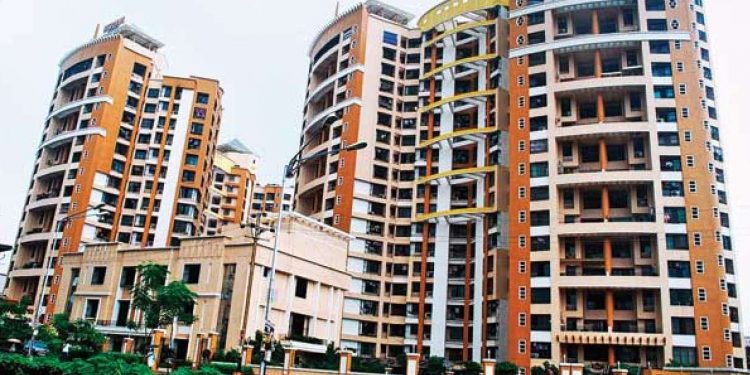New Delhi: India Inc Thursday said the second tranche of the stimulus package will provide relief to the most vulnerable sections of the society reeling under the impact of COVID-19 and boost the housing sector, aiding economic growth.
The government Thursday announced a Rs 3.16 lakh crore package of free foodgrains for migrant workers, concessional credit to farmers and working capital loan for street vendors as part of the second tranche of fiscal stimulus to heal an economy hit hard by the lockdown.
At a news conference, Finance Minister Nirmala Sitharaman said 8 crore migrant workers will get 5 kg of grains and 1 kg of pulses free for two months, while 50 lakh street vendors rendered jobless by the lockdown would be given a working capital loan of Rs 10,000 each.
As many as 2.5 crore farmers will be provided Rs 2 lakh crore of concessional credit through Kisan Credit Cards.
Also for post-harvest (Rabi) and current Kharif crop requirements in May and June, NABARD will provide Rs 30,000 crore additional emergency working capital funding for farmers through rural cooperative banks and regional rural banks.
She also announced a Rs 70,000 crore boost to the housing sector through one-year extension of subsidised loan for affordable houses for the middle-income group with an annual income of Rs 6 lakh to Rs 18 lakh.
” Today’s announcements take forward the elements that were mentioned in the Pradhan Mantri Gareeb Kalyan Yojana and add more dimensions to it. We hope that the government has planned for the implementation of these schemes well in conjunction with the state governments who will have a major role to play here,” Sangita Reddy, President, FICCI said.
CII Director General Chandrajit Banerjee said the second tranche of stimulus package rightfully focussed on providing relief to poor including migrant workers, farmers, street vendors and members of tribal community who have borne the brunt of the lockdown necessitated due to COVID-19 outbreak.
Banerjee said it is heartening to note that the immediate availability of Rs 30,000 crore of Emergency Working Capital Funds through NABARD for the small and marginal farmers is expected to meet post-harvest Rabi and current Kharif related work.
In addition, the Rs 2 lakh crore concessional credit boost to farmers through Kisan Credit Cards will ensure that the ongoing agricultural operations are not interrupted due to lack of funds, he added.
For migrant workers, the availability of free foodgrains, concessional rental housing complexes, among other measures are expected to alleviate their stress by providing them some succour in the current challenging scenario, he said.
The measure to extend Credit Linked Subsidy Scheme (CLSS) for middle income group is expected to give a boost to the all-important housing sector which has significant multiplier impact on rest of the economy, Banerjee added.
Assocham Secretary General Deepak Sood said:”After providing crucial support to the MSME sector, the Prime Minister’s Rs 20 lakh crore economic package has most aptly targeted small farmers, migrant workers and street vendors who are the most vulnerable section of the society, reeling under the COVID-19 crisis,”
Increased credit availability to the farm and allied rural sectors through extension of PM Kisan Card scheme would also play a critical role in reviving the country’s economic growth, Sood said.
Ajay Kakra, Leader – food and agriculture at PwC India said the initiative of Rs 2 lakh crore credit boost to increase coverage of 2.5 lakh farmers under Kisan Credit Card scheme will surely increase the credit umbrella and help increase their liquidity issue given the acute cash crunch during the current crisis.
“Additional Emergency Working Capital Fund of Rs 30,000 crore from NABARD can come very handy to farmers for managing post harvest operations for Rabi or pre-season operations for Kharif season during the COVID-19 situation when the entire food supply chain is looking forward towards increasing liquidity,” he added.
Partha Chatterjee, Dean – International Partnerships, Shiv Nadar University said:”It is good to see that the government is acknowledging that more needs to be done for migrants, workers, street vendors and other marginalized sections.
“This crisis has pointed out glaring shortcomings in not only understanding their needs and their roles in nation building, but also something more basic – complete lack of data. So, announcements about defining and registering these workers will help in the future. But, like this, many other announcements today are welcome reforms, but those will take long time to fruition.”
Reliance Home Finance CEO Ravindra Sudhalkar said the concessions promised to manufacturing units and industries to take up such projects and also allowing them to follow the BOT model similar to road projects, for constructing these rented dwellings will encourage many new players to enter the affordable housing segment.
(PTI)






































